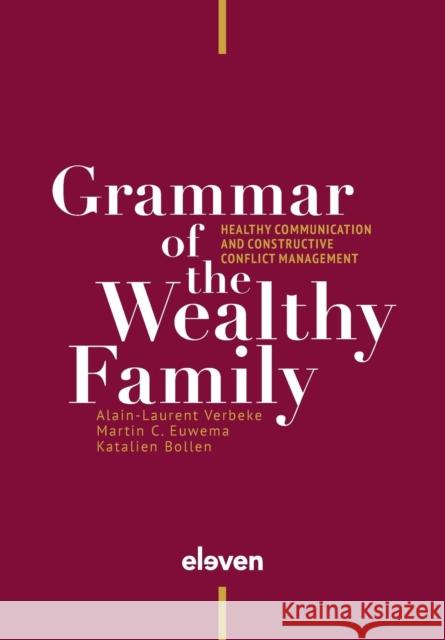Grammar of the Wealthy Family: Healthy Communication and Constructive Conflict Management » książka
Grammar of the Wealthy Family: Healthy Communication and Constructive Conflict Management
ISBN-13: 9789462363175 / Angielski / Miękka / 2022 / 138 str.
Any person with money and assets at some point in time worries about the future of that wealth after his passing away. What will happen with the money and valuables? The real estate and the company? Estate planning is a broad area of law where private law, tax law, corporate law and private international law blend together. Grammar of the Wealthy Family discusses communication about these important and sensitive issues within the family. Traditionally, the answers are framed top-down, within the leading generation's tunnel vision: the head of the family decides how the future should look like. Can such planning, strictly implementing the wishes of the head of the family, be sustainable? How much satisfaction and happiness does it bring to all family members involved, in particular to the next generation? We think such a claim on family harmony and sustainable shareholdership is doomed to create frustration, irritation and often non-compliance. A wise and mature estate planning should contribute both to the growth and flourishing of the estate as well as of the different family members as happy and balanced human beings. Estate planning should be a bottom-up family planning, taking into account the dreams and wishes of all family members, embedded in a shared vision, mission and strategy for the family and its wealth, also for future generations. This requires hard work and a spirit of open communication with respect for all family members. Traditional estate and tax planning is only the third and last step in a family process towards sustainable shareholdership. It is preceded by two previous steps of first getting the family ready and secondly having the family negotiate their shared values and mission. This requires families to be educated in a process of genuine open dialogue and reflection. Grammar of the Wealthy Family discusses the innumerable explicit and, above all, implicit rules of communication within the family. The authors pay attention to communication within the family and analyze how and why families talk about the present, past and future. They offer tools to better deal with conflicts through constructive communication. Drawing from more than three decades of practical experience the authors aptly illustrate their theory. Exercises and reflections offer families and their advisors the opportunity to take concrete steps towards more and better communication as well as tools to organize their business and wealth in a harmonious way, now and for the next generation. The authors are Family & Business Dynamics - Governance senior experts at the Greenille Private Client Team of Deloitte Legal (Belgium, NSE), and lead the KU Leuven Centre for Business Families.











